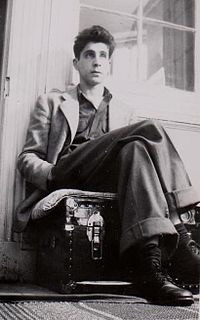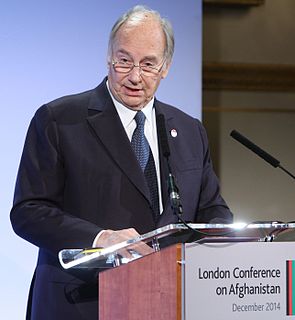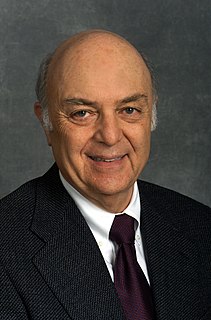A Quote by Anthony Hecht
Brilliant. [Lasdun] seems to me certainly among the most gifted, vivid, and deft poets now writing in English, and far better than many who are more famous. His capacities are solidly established; his promise is nearly infinite.
Related Quotes
Sri Ramakrishna is far greater than the disciples understand him to be. He is the embodiment of infinite spiritual ideas capable of development in infinite ways....One glance of his gracious eyes can create a hundred thousand Vivekanandas at this instant. If he chooses now, instead, to work through me, making me his instrument, I can only bow to his will.
My grandfather was a most gifted person, and amongst his many qualities, one of them had always particularly impressed me. While the past was a book he had read and re-read may times, the future was just one more literary work of art into which he used to pour himself with deep thought and concentration. Innumerable people since his death have told me how he used to read in the future, and this certainly was one of his very great strengths.
My friend had a brilliant idea. This impressed me. It reflected an immense deal of credit on his brain. But when he expressed it,it lost all value, and enjoyed but a commonplace status. My friend blamed this devaluation on the language. "I hate English," he said. So he studied another language. He mastered it so perfectly that there was no room left in his brain for a brilliant idea. Now he has a grudge against words. He refuses to use them. He prefers to shrug or grunt. A new crop of ideas is growing. They show promise of future refinement.
The power of magic has no known limits. A person knows, in a fair way, his own physical capacities, the weight of the blows he can deal, the furthest range of his arrows, the strength of his voice, the speed and endurance of his running; but the reaches of his mind are indefinite and, to his feeling, infinite.
Get people talking. Learn to ask questions that will elicit answers about what is most interesting or vivid in their lives. Nothing so animates writing as someone telling what he thinks or what he does - in his own words. His own words will always be better than your words, even if you are the most elegant stylist in the land.
Nearly all the writing of our time is likely to disappear in a hundred years. Certainly most readers - and nearly all critics - feel that [Kurt] Vonnegut started to repeat himself, to grow increasingly self-indulgent and meandering, and to sometimes just blather in his later work. But his books up to "Slaughterhouse-Five" do possess a distinctiveness that will insure some kind of permanence, if only in the history of the 1960s and of science fiction.
Perhaps even more than constituted authority, it is social uniformity and sameness that harass the individual most. His very "uniqueness," "separateness" and "differentiation" make him an alien, not only in his native place, but even in his own home. Often more so than the foreign born who generally falls in with the established.
He loved me. He'd loved me as long as he he'd known me! I hadn't loved him as long perhaps, but now I loved him equally well, or better. I loved his laugh, his handwriting, his steady gaze, his honorableness, his freckles, his appreciation of my jokes, his hands, his determination that I should know the worst of him. And, most of all, shameful though it might be, I loved his love for me.
Writing has taught me a lot - though far from everything - about writing, so as time has passed, it has become more pleasurable if not easier. I've done other things in life, but writing is by a factor of 10 the most difficult among them. And, of course, you never achieve what you set out to achieve, so you must keep on trying to do better.
Once again Erak bellowed with laughter. "Your master here went nearly the same shade of green as his cloak," he told Will. Halt raised an eyebrow. "At least I found a use for that damned helmet," he said, and the smile disappeared from Erak's face. "Yes. I'm not sure what I'm going to tell Gordoff about that," he said. "He made me promise I'd look after that helmet. It's his favorite-a real family heirloom." "Well it certainly has a lived in feel to it now," Halt told him, and Will noticed there was a hint of malicious pleasure in his eye.
Perhaps I had better inform my Protestant readers that the famous Dogma of Papal Infallibility is by far the most modest pretension of the kind in existence. Compared with our infallible democracies, our infallible medical councils, our infallible astronomers, our infallible judges, and our infallible parliaments, the Pope is on his knees in the dust confessing his ignorance before the throne of God, asking only that as to certain historical matters on which he has clearly more sources of information open to him than anyone else his decision shall be taken as final.







































